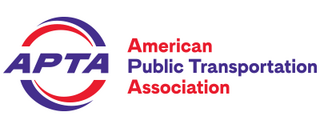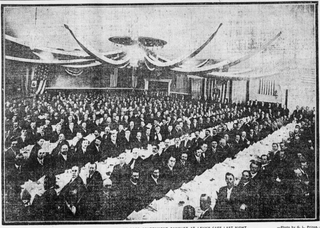
In the United States, politics functions within a framework of a constitutional federal republic. The three distinct branches share powers: the U.S. Congress which forms the legislative branch, a bicameral legislative body comprising the House of Representatives and the Senate; the executive branch, which is headed by the president of the United States, who serves as the country's head of state and government; and the judicial branch, composed of the Supreme Court and lower federal courts, and which exercises judicial power.

Russell County is a county in the U.S. state of Kansas. Its county seat and largest city is Russell. As of the 2020 census, the population was 6,691. The county was named for Avra Russell. The city of Russell was the home of former U.S. Senate Majority leader and 1996 GOP presidential nominee Bob Dole for many years.

An unincorporated area is a region that is not governed by a local municipal corporation. There are many unincorporated communities and areas in the United States and Canada.
A township in some states of the United States is a small geographic area.

North Dakota was first settled by Native Americans several thousand years ago. The first Europeans explored the area in the 18th century establishing some limited trade with the natives.

The American Public Transportation Association (APTA) is a nonprofit group of approximately 1,500 public and private sector member organizations that promotes and advocates for the interests of the public transportation industry in the United States.

The Bank of North Dakota (BND) is a state-owned, state-run financial institution based in Bismarck, North Dakota. It is the only government-owned general-service bank in the United States. It is the legal depository for all state funds in North Dakota, and uses these deposits to fund development, agriculture, and small businesses.

Most U.S. states and territories have at least two tiers of local government: counties and municipalities. Louisiana uses the term parish and Alaska uses the term borough for what the U.S. Census Bureau terms county equivalents in those states. Civil townships or towns are used as subdivisions of a county in 20 states, mostly in the Northeast and Midwest.

The Consumer Federation of America (CFA) is a non-profit organization founded in 1968 to advance consumer interests through research, education and advocacy.
The Federation of Canadian Municipalities is an advocacy group representing over 2000 Canadian municipalities. It is an organization with no formal power but significant ability to influence debate and policy, as it is a main national lobby group of mayors, councillors and other elected municipal officials. It negotiates with the Government of Canada's departments and agencies on behalf of municipalities, and provides fund administration services for the Government of Canada's departments and agencies.

The National League of Cities (NLC) is an American advocacy organization that represents the country's 19,495 cities, towns, and villages along with 49 state municipal leagues. Created in 1924, it has evolved into a membership organization providing education, research, support, and advocacy to city leaders across America. Based in Washington, D.C., it is considered part of the 'Big Seven', a group of organizations that represent state and local governments in the United States. NLC provides training and other resources to municipal officials, holds conferences, and conducts federal advocacy efforts on behalf of cities, towns and villages.
Americans for the Arts is a nonprofit organization whose primary focus is advancing the arts in the United States with offices in Washington, D.C., and New York City, and more than 50 years of service. Americans for the Arts is dedicated to representing and serving local communities, and creating opportunities for every American to participate in and appreciate all forms of the arts.
The National Conference of State Legislatures (NCSL), established in 1975, is a "nonpartisan public officials' association composed of sitting state legislators" from the states, territories and commonwealths of the United States.
The Alliance for Community Media (ACM), is an educational, advocacy and lobbying organization in the United States which represents Public, educational, and government access (PEG) cable TV organizations and community media centers throughout the country.

The United States has a history of citizen, nonprofit, and other non-partisan groups advocating good government that reaches back to the late-19th-century municipal-level Progressive Movement and the development of governmental professional associations in the early part of the 20th century, such as the American Public Human Services Association and the International City/County Management Association. Many of these groups had their genesis at the Public Administration Center at 1313 East 60th Street, at the University of Chicago.
The Michigan Municipal League is a nonprofit association of municipalities and municipal leaders in the State of Michigan. The group banded in 1899 under the motto “Cooperation solves any problem” to reflect the organizers’ combined purposes: exchange of information, shared learning, development of unified policies on matters of municipal concern, and to form a collective voice on matters including home rule for local government.

Wind Powering America (WPA) is an initiative of the United States Department of Energy (DOE) that seeks to increase the use of wind energy throughout the United States. WPA collaborates with key state and regional stakeholders, including farmers, ranchers, Native Americans, rural electric cooperatives, consumer-owned utilities, and schools to break down barriers associated with wind energy development.

The Summer Food Service Program (SFSP) began in 1968. It was an amendment to the National School Lunch Act. Today, the SFSP is the largest federal resource available for local sponsors who want to combine a child nutrition program with a summer activity program. Sponsors can be public or private groups, such as non-profit organizations, government entities, churches, universities, and camps. The government reimburses sponsors for the food at a set rate. There are still communities that have not created a Summer Food Service Program in their community. For those individuals that want to help ensure children have meals during the summer, they can get more information from the USDA or their state government agencies.
Heather Dawn Thompson is a Lakota attorney from the Cheyenne River Sioux Tribe. Thompson serves as the Director of the Office of Tribal Relations for the United States Department of Agriculture in the Joe Biden administration.

Mexican American Women's National Association, known today as MANA, A National Latina Organization, advocates for equality and empowers Latinas through leadership development. MANA was founded in 1974, making it one of the oldest active Mexican-American advocacy organizations, and as of 2000, it is considered the largest Latina organization in the United States. The organization was formed to address the intersection of Mexican-American and women's needs for equal rights. The founders created MANA with the intent of having a Latina-oriented organization. MANA publicizes and addresses Latina perspectives and needs through Social movements, Leadership education, and Advocacy within federal, state, and local governments. They have been involved with multiple major social movements throughout their history. These include advocating for the Equal Rights Amendment and Reproductive rights, as well as social movements on education, leadership development, women's healthcare, and racial discrimination in the work. MANA currently operates from its home base in Washington, D.C., and has local chapters across the nation.